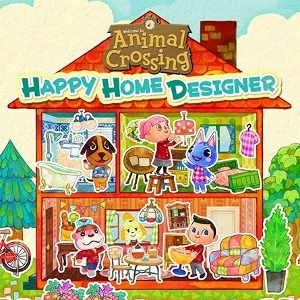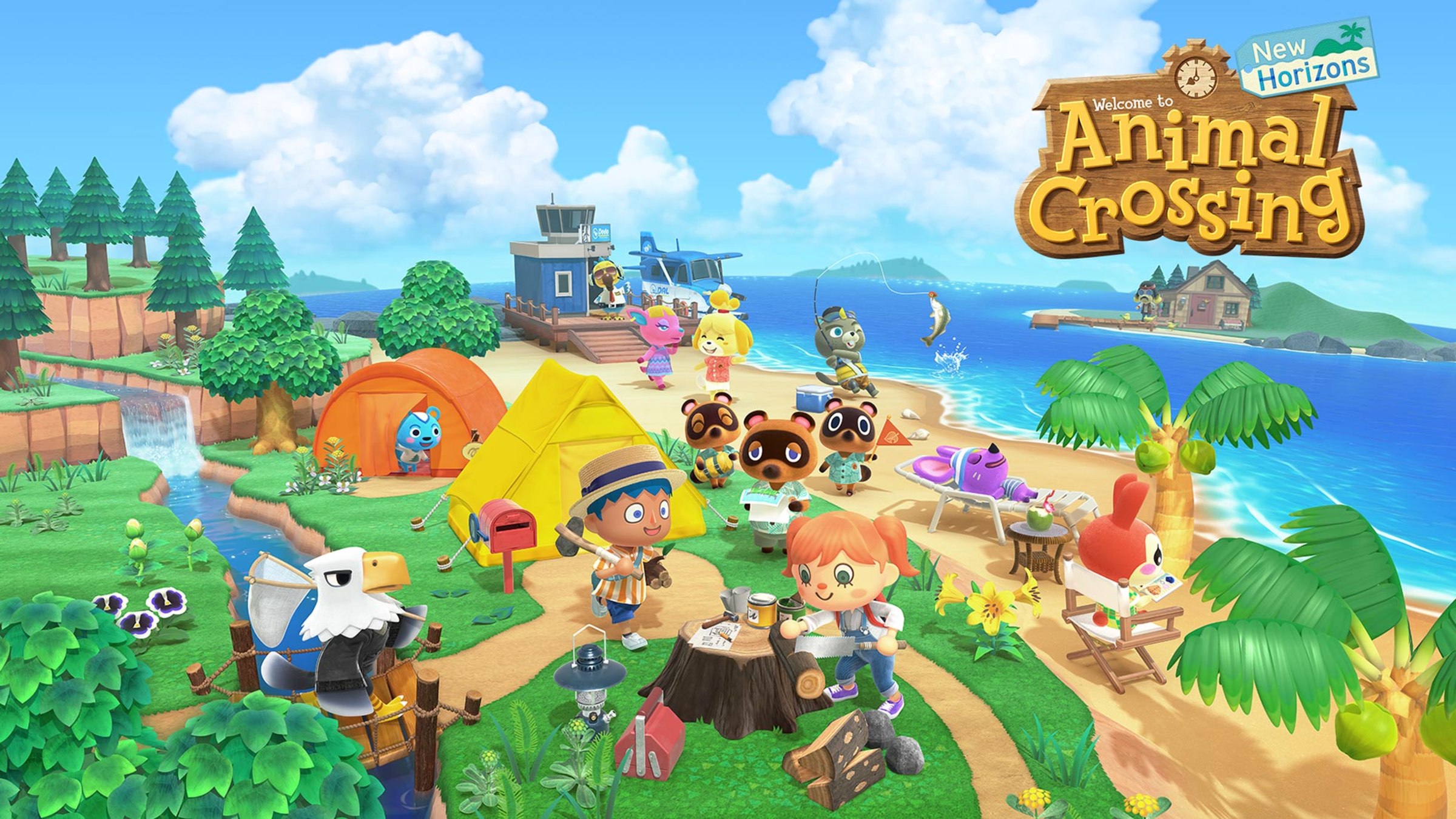ABOUT ANIMAL CROSSING: New Horizons
About ACNH
Animal Crossing: New Horizons (ACNH), created in 2020, is a life simulation game designed for the Nintendo Switch. ACNH is set on a deserted island, which essentially serves as a blank canvas for the players. On this island, players create their own community, become friends with their fellow villagers, and design a unique home. Most users appreciate the game’s sense of escapism, especially during the height of the pandemic, as ACNH offers open-ended gameplay where one can express their creativity in a relaxed environment (Fernández, 2023). Another factor that led to the game’s spike in popularity is its community. Players can visit each other’s homes, complete gameplay tasks, and give each other gifts. The game includes many activities for your character to participate in, like fishing, bug catching, and furniture collecting. After players become established on their island, they can decorate their home, collect furniture and tools, and participate in events like fishing tournaments to achieve a 5-star island rating (Fernández, 2023).
HOW TO PLAY
The essence of ACNH lies in its open-ended gameplay, allowing players to embody an avatar that moves to a deserted island thanks to a package offered by the entrepreneurial raccoon, Tom Nook. Upon arrival, players are greeted by an untouched paradise, ready to be molded into their personal haven. The game unfolds in real-time, with each day bringing new opportunities, challenges, and surprises (Crossing, 2020).
Players begin by setting up a tent, gradually upgrading to a house, and then expanding and customizing their living space to their heart’s content. The island’s development is a gradual process, involving the collection of resources like wood, stone, and fruits. Crafting plays a significant role, enabling players to create everything from tools to furniture, contributing to the island’s transformation (Crossing, 2020).
History of Animal Crossing
The legacy of Animal Crossing stretches back to the dawn of the 21st century, with its first iteration released for the Nintendo 64 in Japan in 2001, before making its way to the GameCube as an enhanced version for a global audience (Nookipedia, 2024). This charming simulation game, known for its real-time clock and calendar, allowed players to immerse themselves in a quaint village inhabited by anthropomorphic animals. Its unique blend of social interaction, item collection, and world customization captured the hearts of many, laying the groundwork for a series that would flourish over the years (Nookipedia, 2024).
Subsequent releases, including “Animal Crossing: Wild World” for the Nintendo DS, “Animal Crossing: City Folk” for the Wii, and “Animal Crossing: New Leaf” on the 3DS, each introduced new features, from online play to being the town mayor, progressively enriching the gameplay and deepening the world’s lore (Nookipedia, 2024). This evolution culminated in “Animal Crossing: New Horizons” for the Nintendo Switch, which, by leveraging the console’s capabilities, offered unprecedented levels of customization and connectivity, making it not only a reflection of the series’ long and storied history but also a beacon of innovation within it (Nookipedia, 2024).
Social Impact
The social relevance of ACNH is profound. While players can interact with anthropomorphic animal villagers, each with distinct personalities and styles, the true star is the game’s support for online play. Players from across the globe can foster relationships through conversations, gifts, and shared activities. They can also visit each other’s islands, exchange items, and participate in events together. (Fernández, 2023).
Beyond the social and creative aspects, players engage with nature through actions like catching bugs, fishing, and planting trees. These activities not only contribute to the museum collections, curated by the owl, Blathers, but also emphasize a connection with the environment and the seasons, since certain species appear only at specific times of the year or under certain conditions (Fernández, 2023).
The timing of ACNH’s release, coinciding with global lockdowns, transformed it from a mere game into a cultural phenomenon (Lewis et al., 2021). It offered a form of virtual escapism from the uncertainties of the real world. Players found solace in the game’s serene landscapes, the predictable and comforting routines of island life, and the ability to control and beautify their surroundings when so much of the real world felt out of control. Moreover, ACNH became a virtual social hub where friends and families separated by physical distance could gather, celebrate birthdays, hold weddings, or simply enjoy each other’s company in a safe and uplifting environment (Lewis et al., 2021). It served as a poignant reminder of the human need for connection, creativity, and a sense of normalcy during tumultuous times.
ACNH’s significance during the COVID-19 pandemic extends beyond its role as a source of entertainment. It became a tool for resilience, allowing people to express creativity, maintain social connections, and manage anxiety and loneliness (Lewis et al., 2021). Educational institutions and organizations utilized it for virtual graduations and meetings, highlighting its versatility and the innovative ways digital platforms can bring people together in challenging times.









